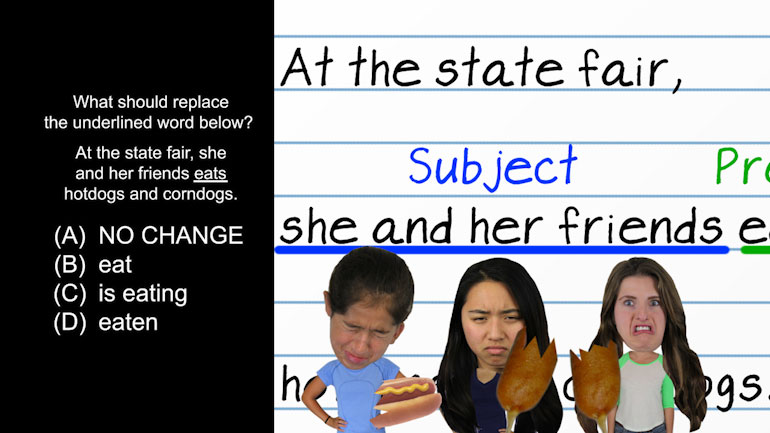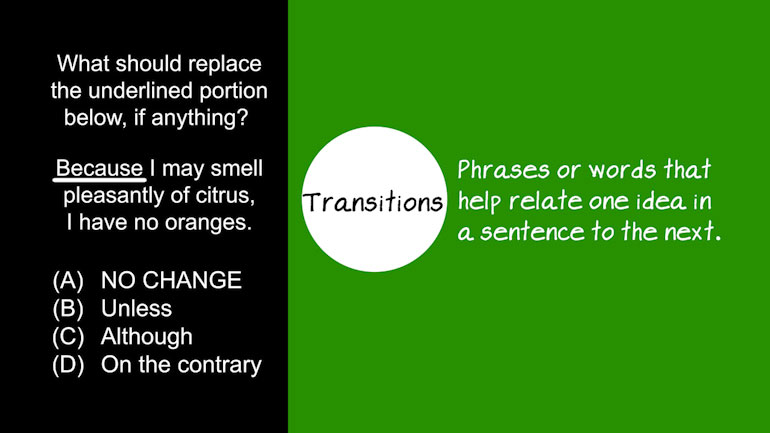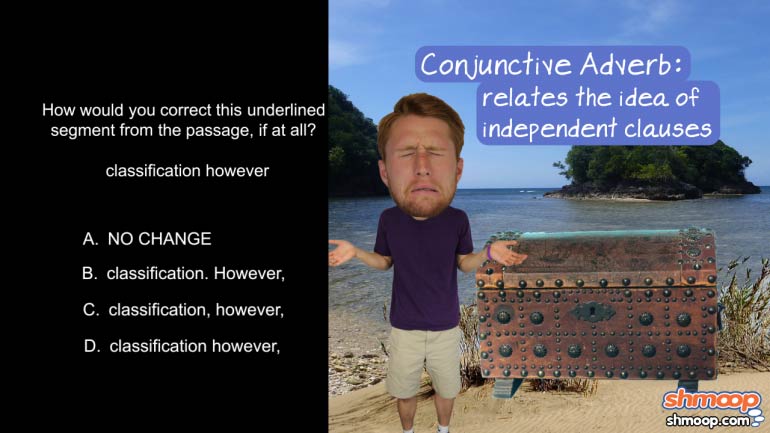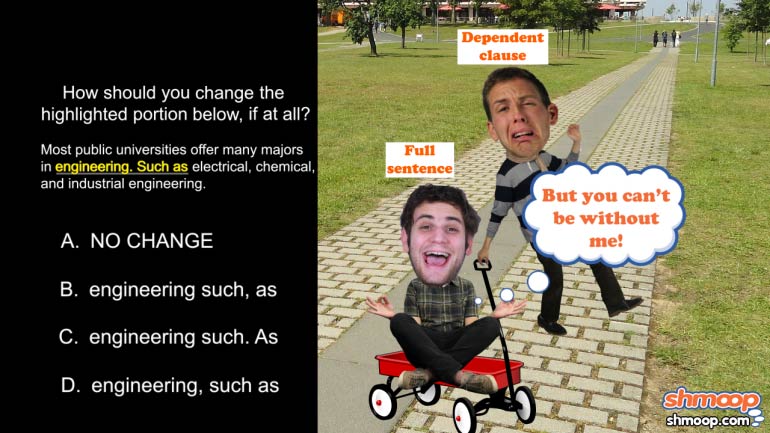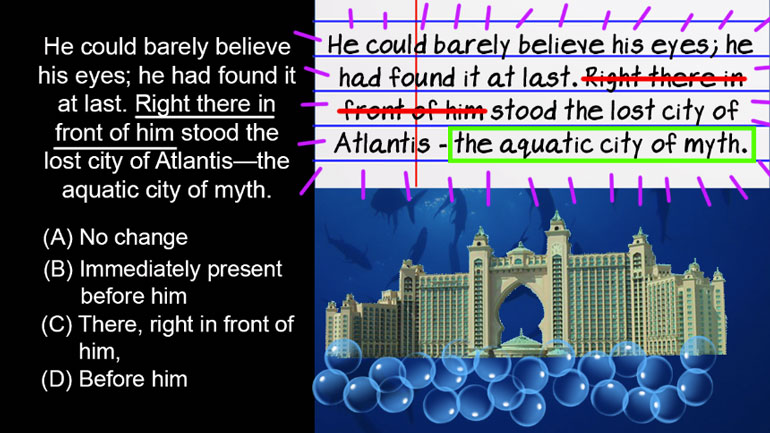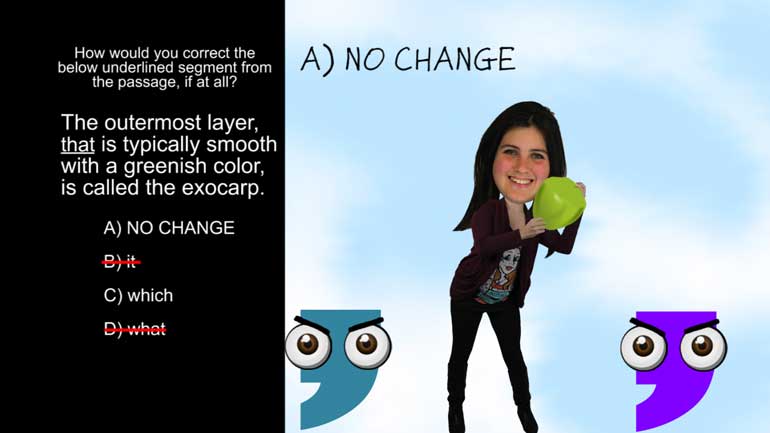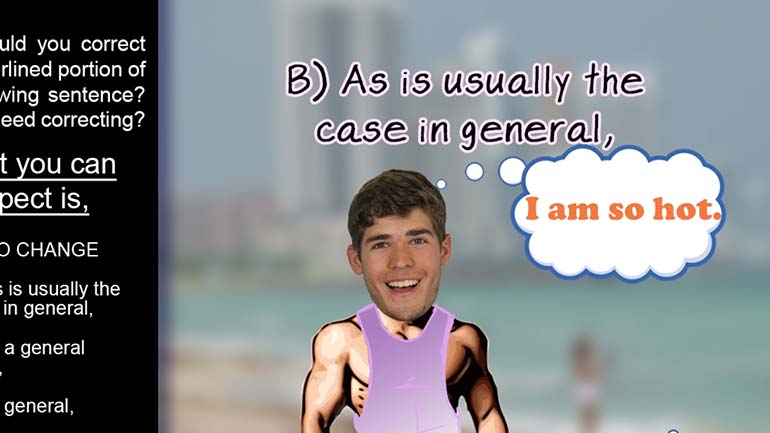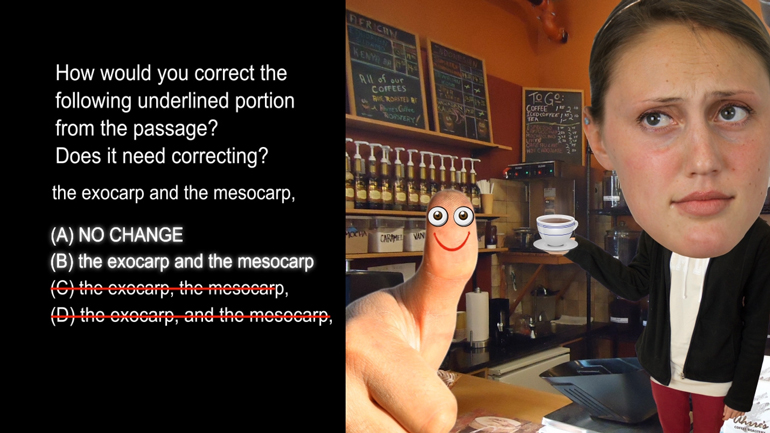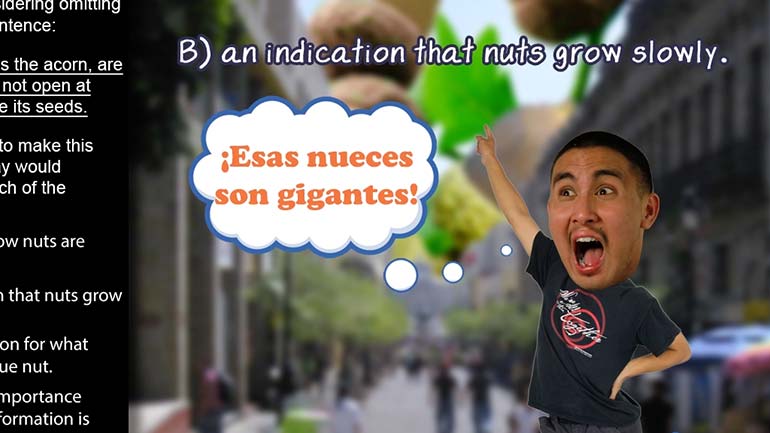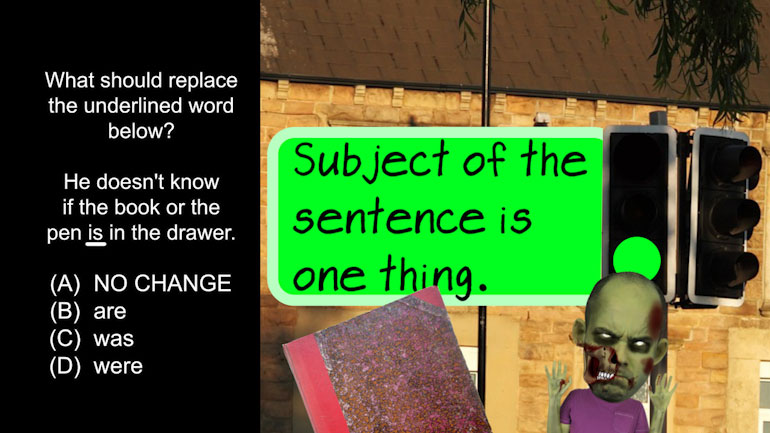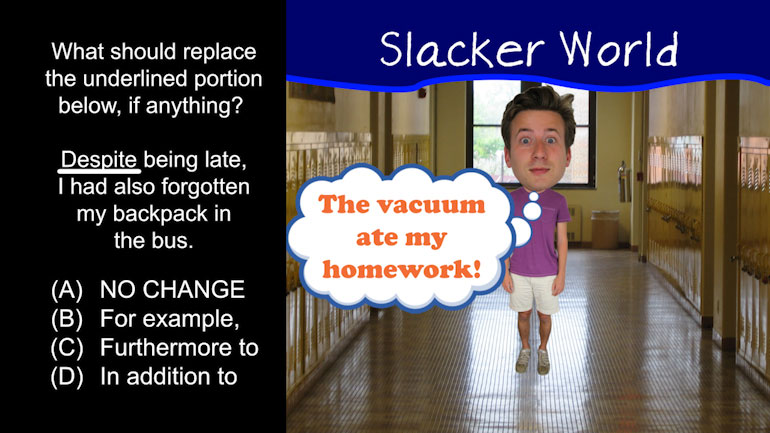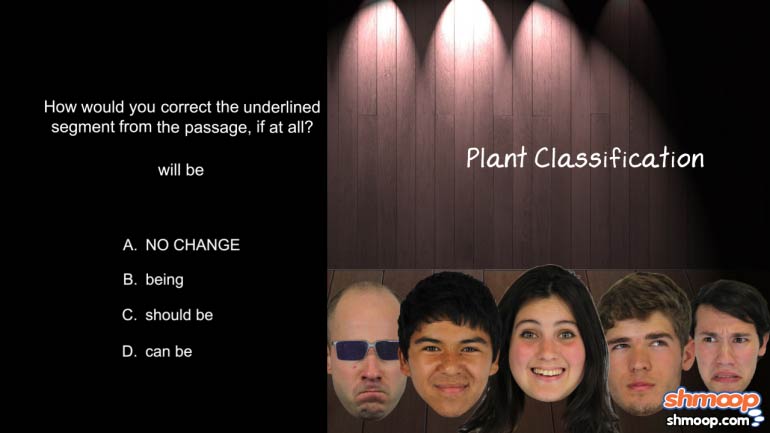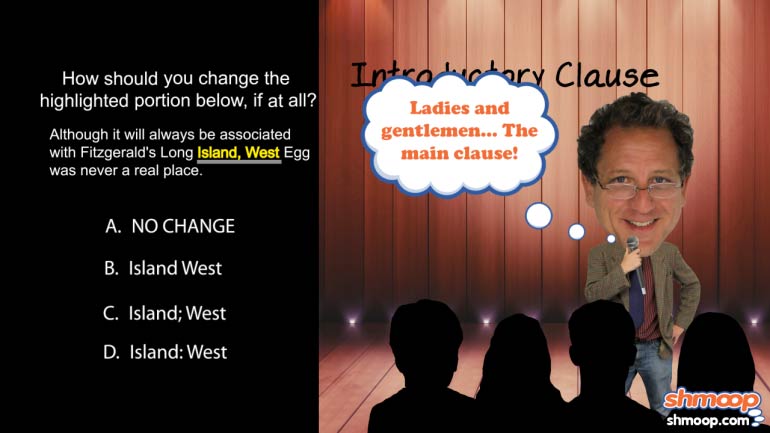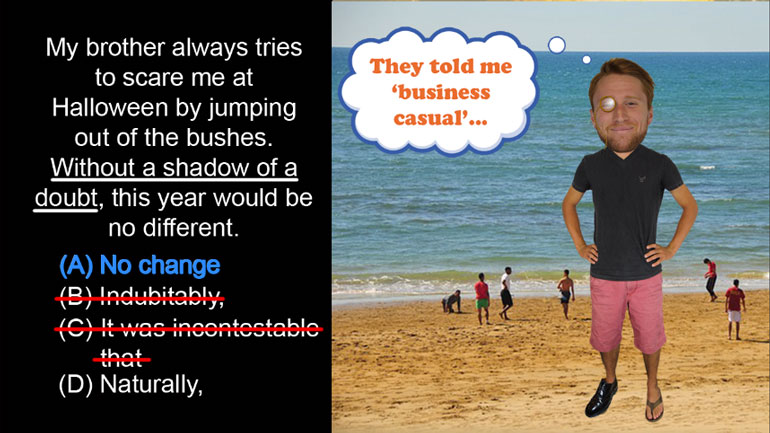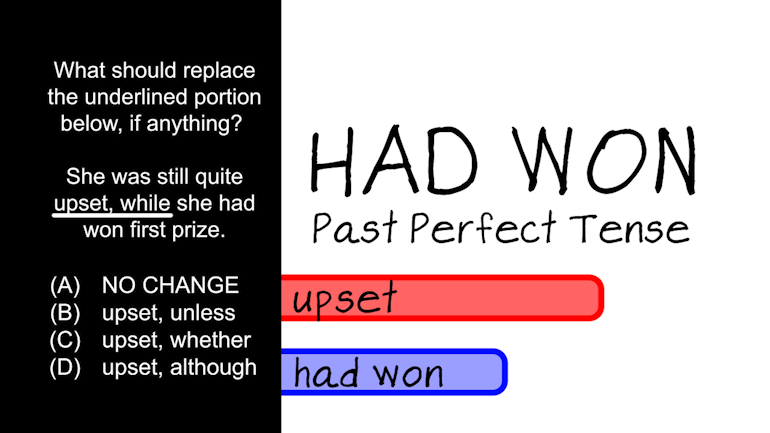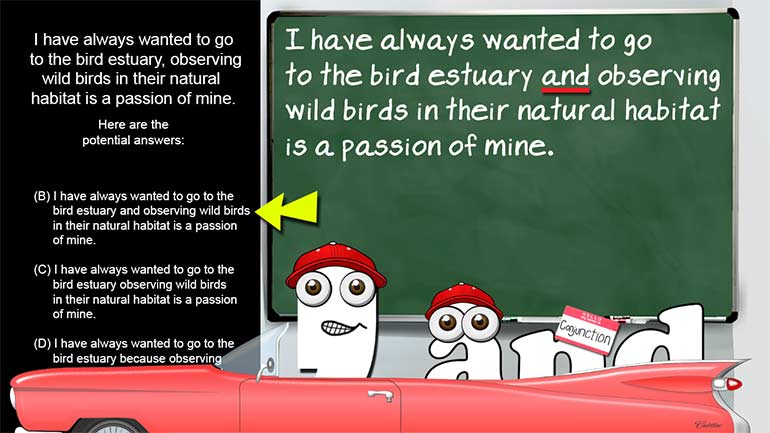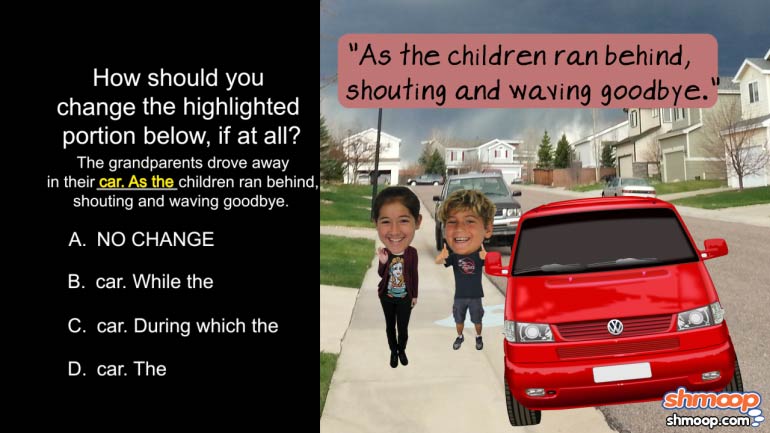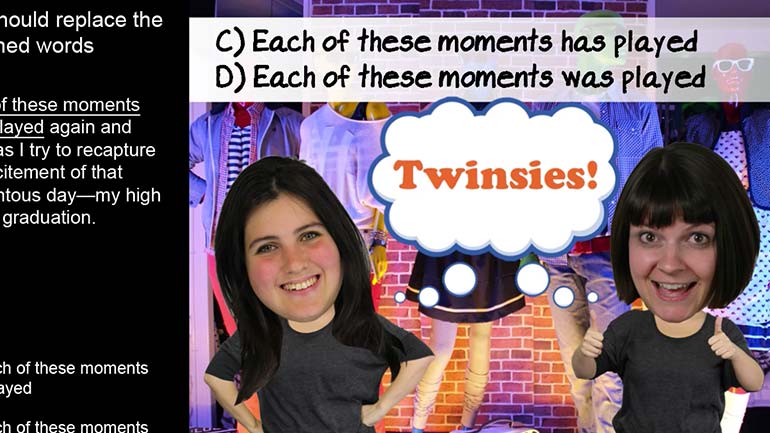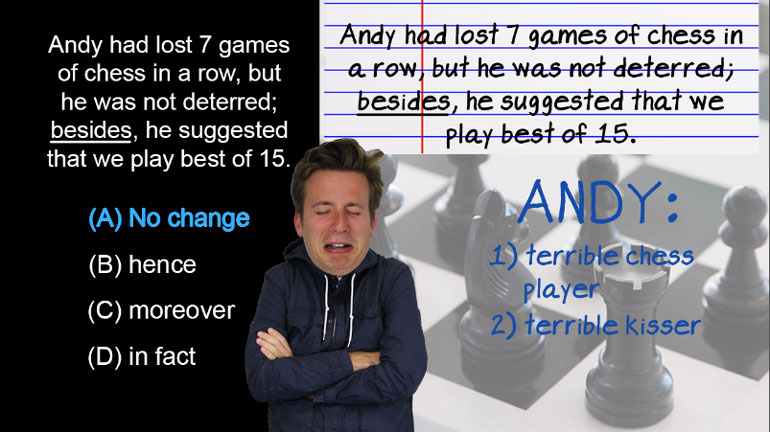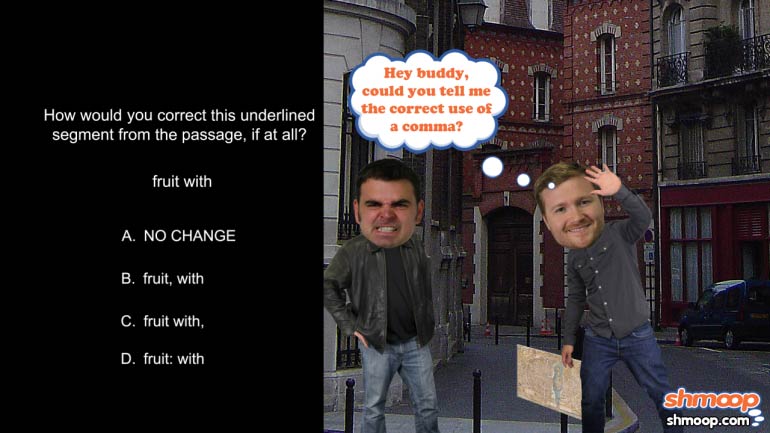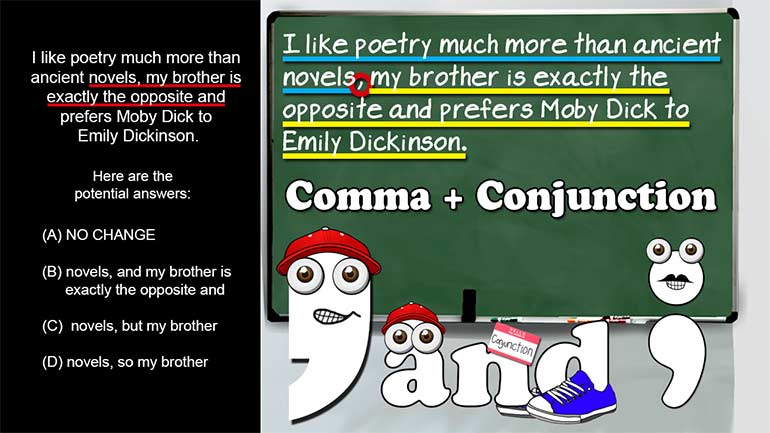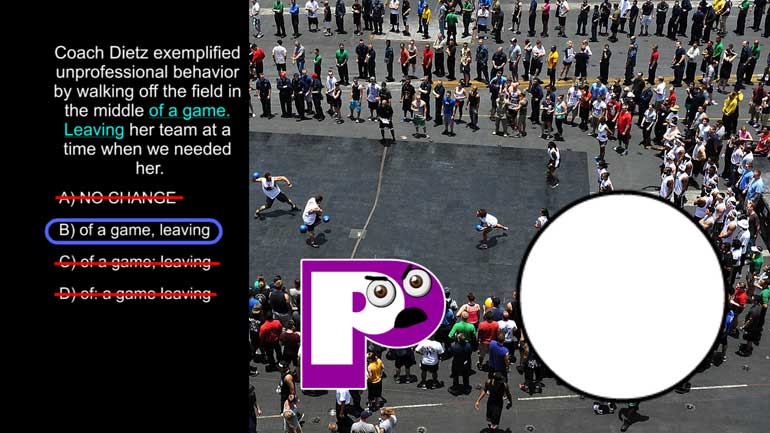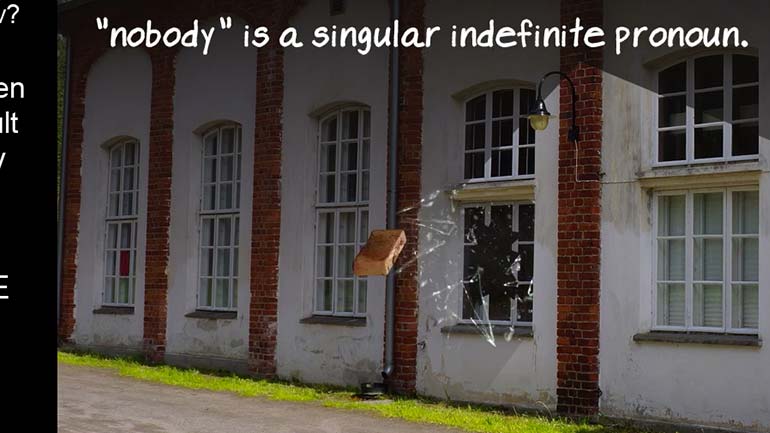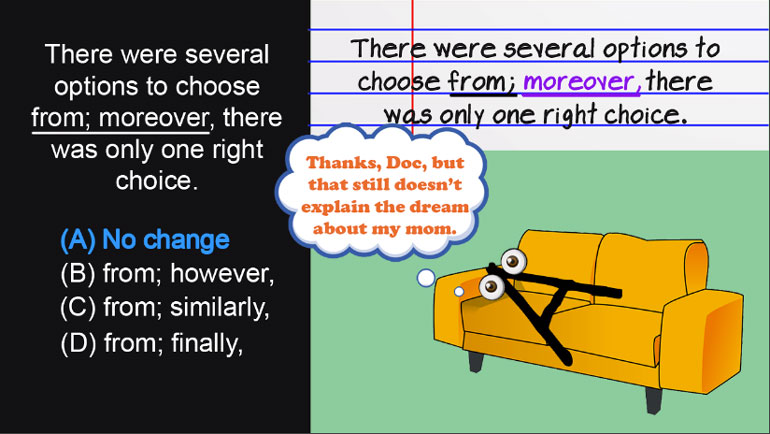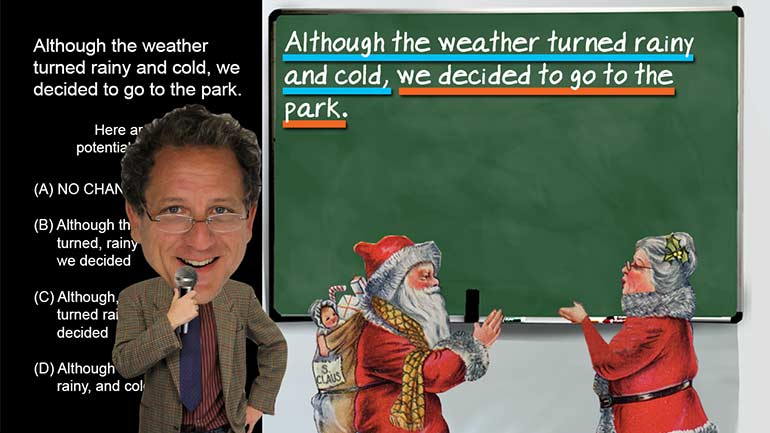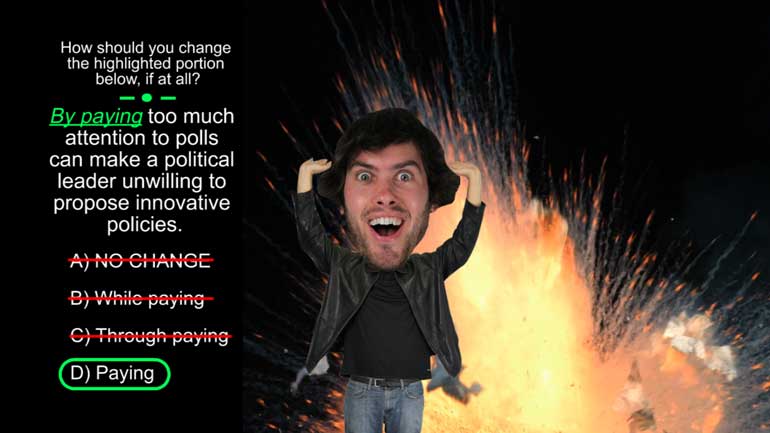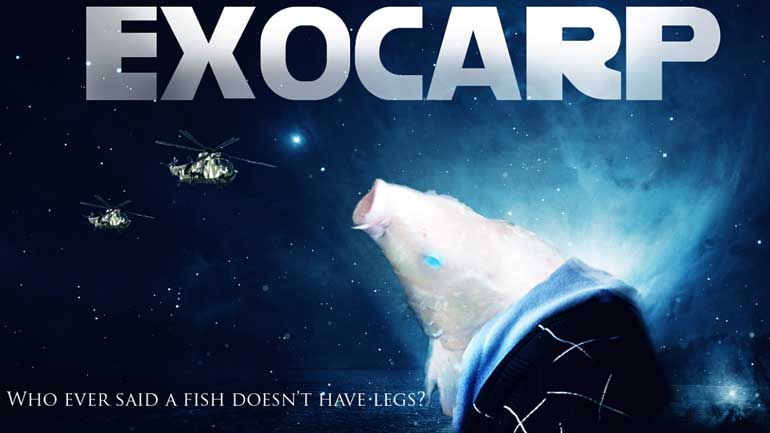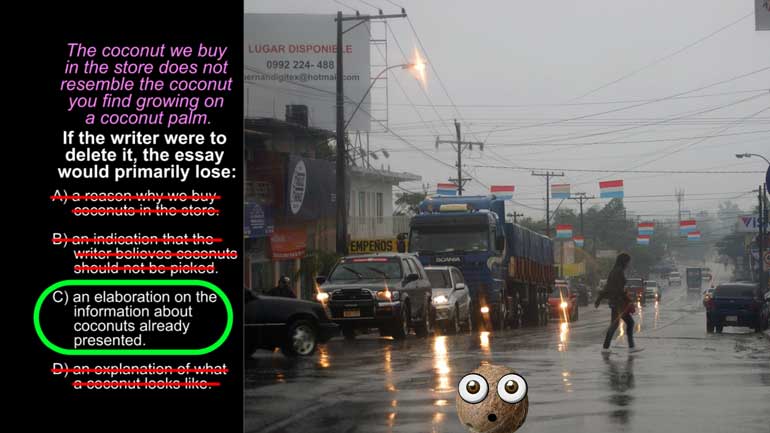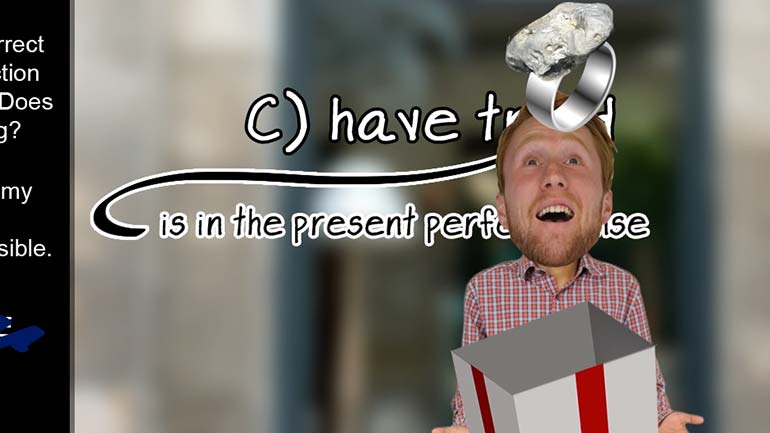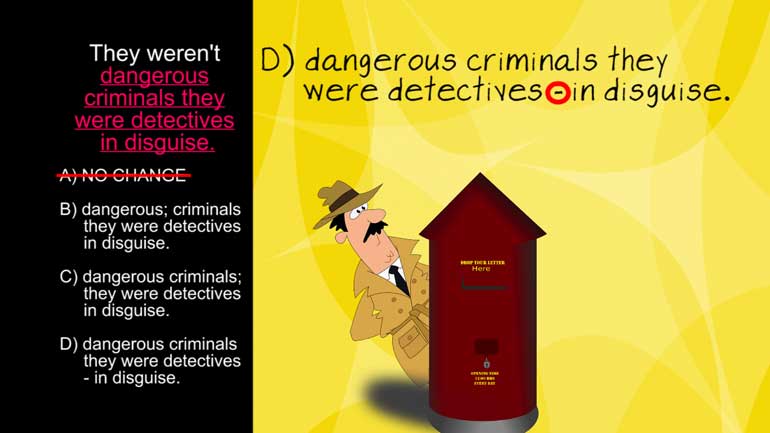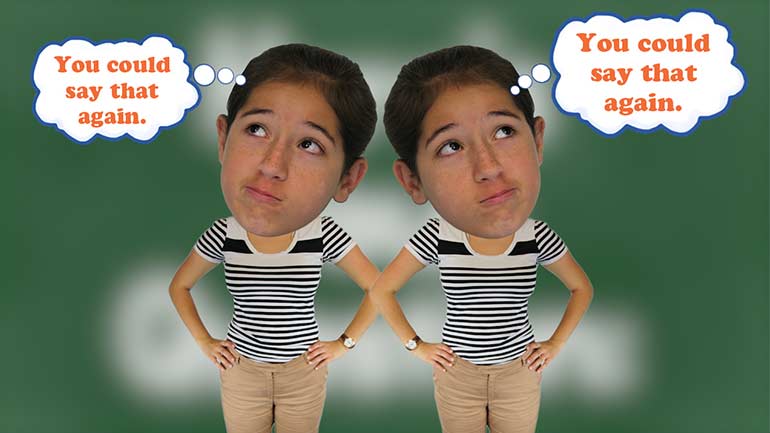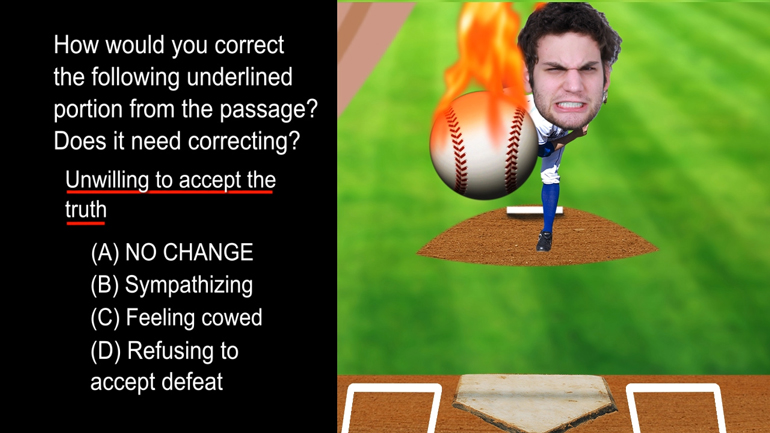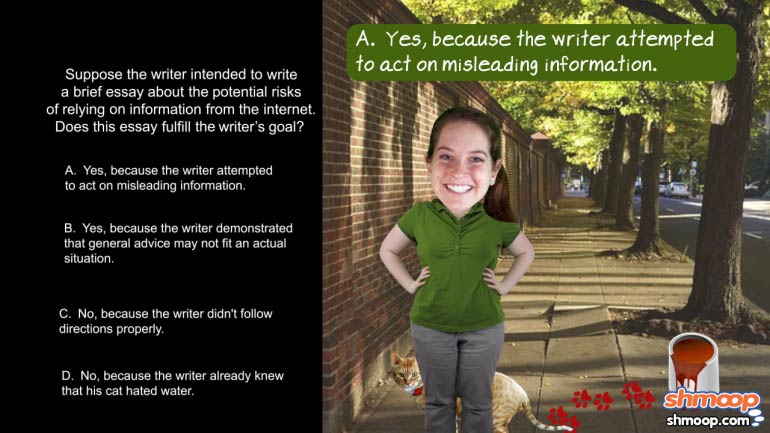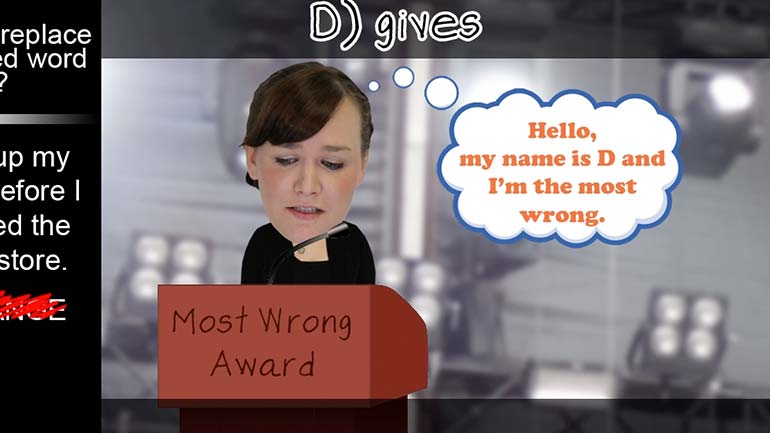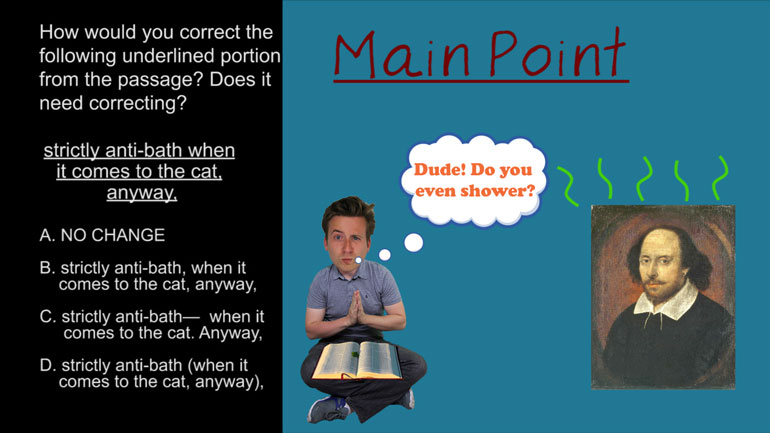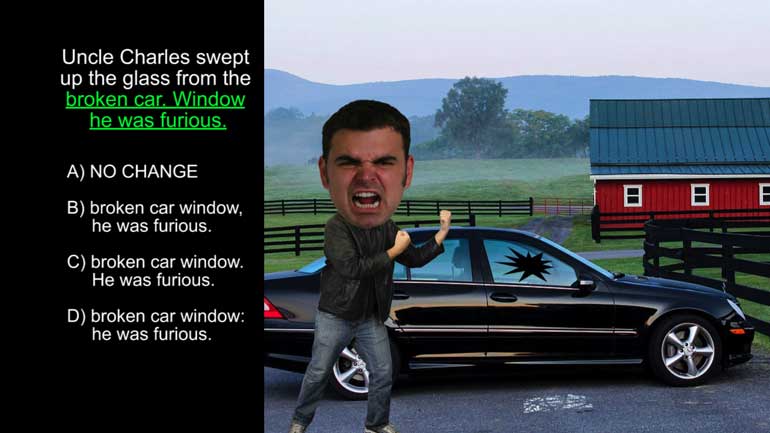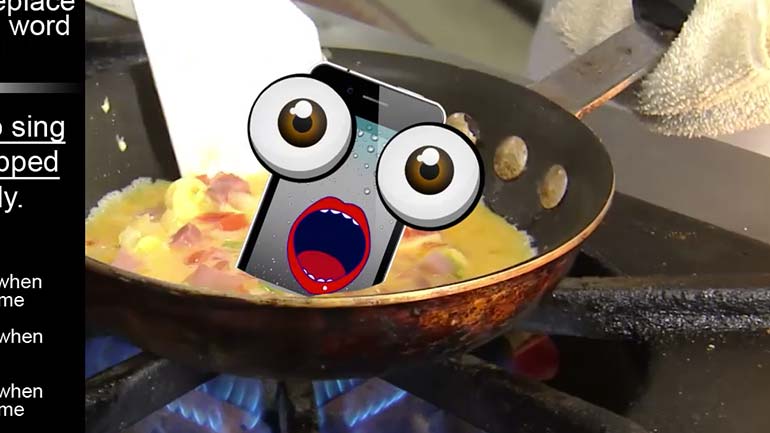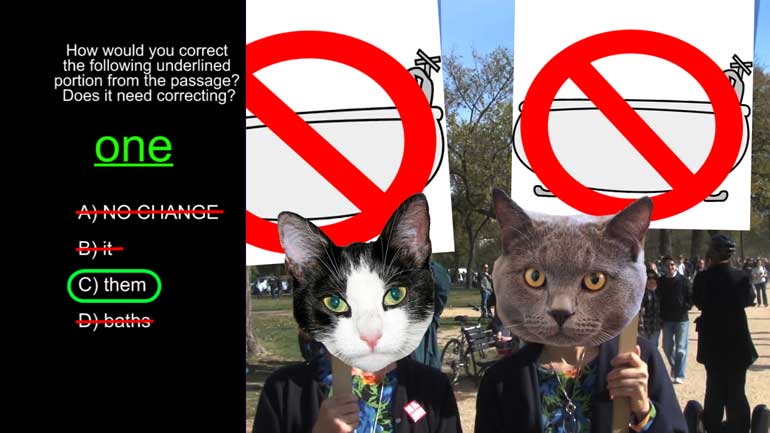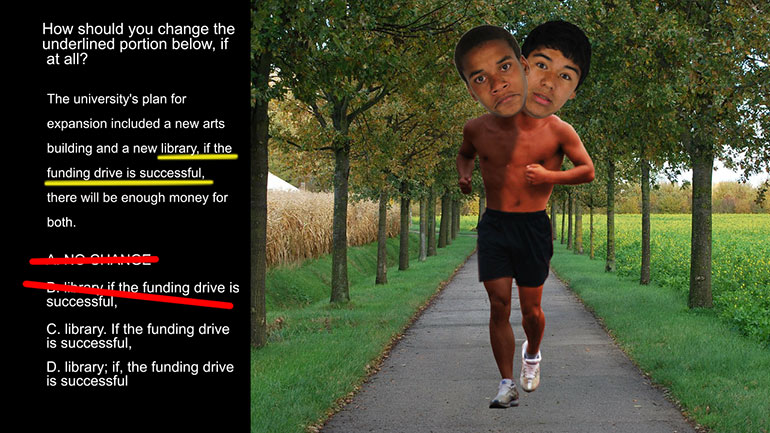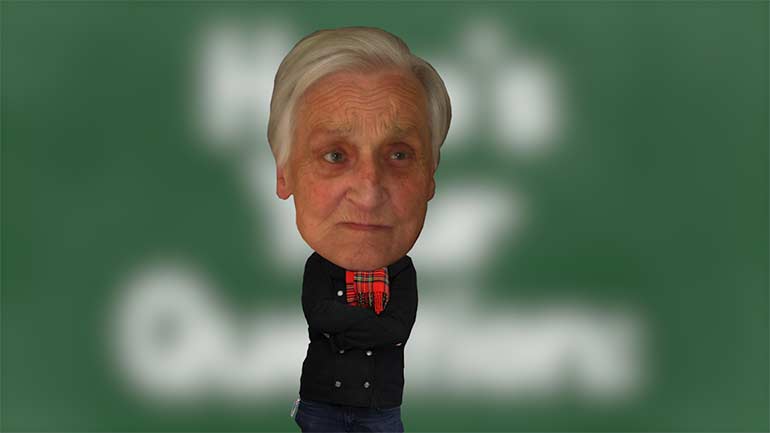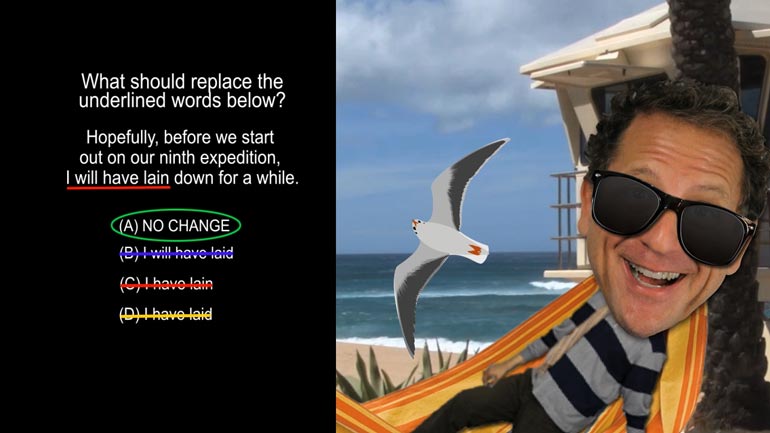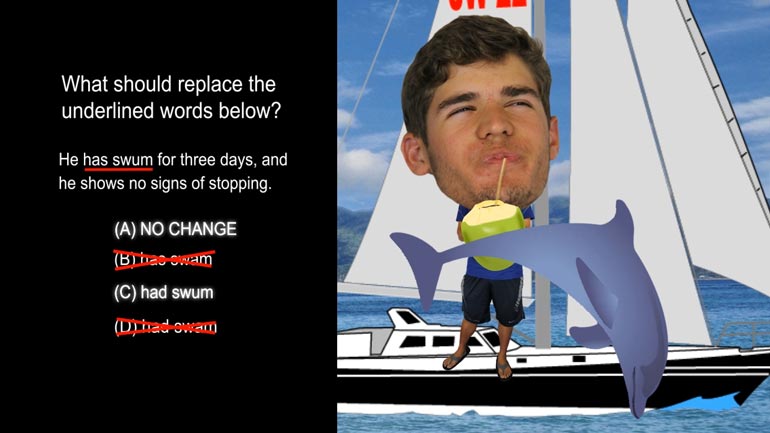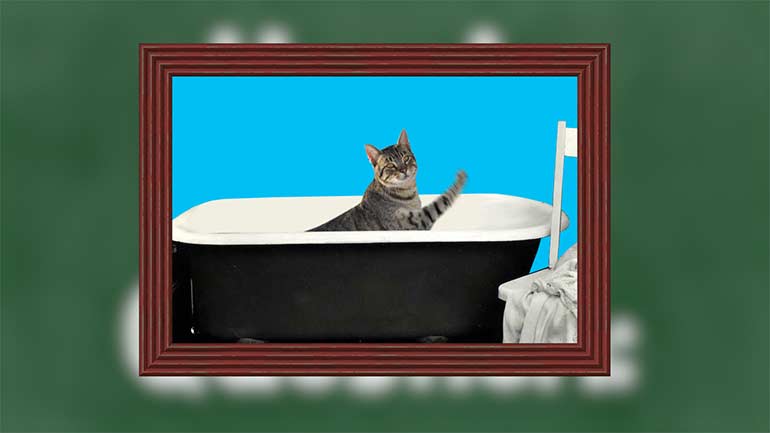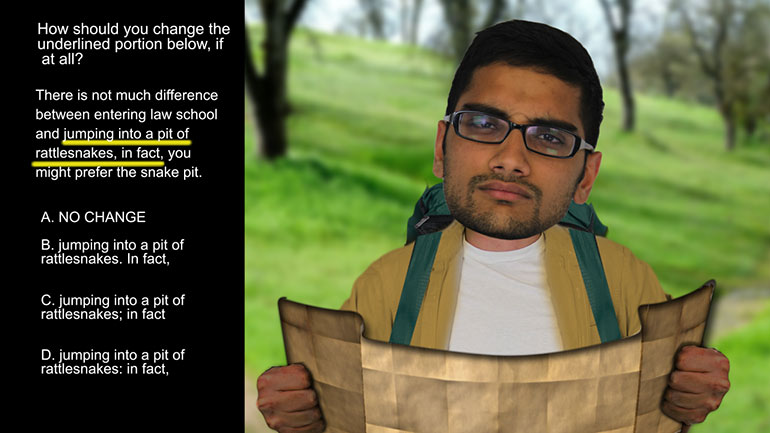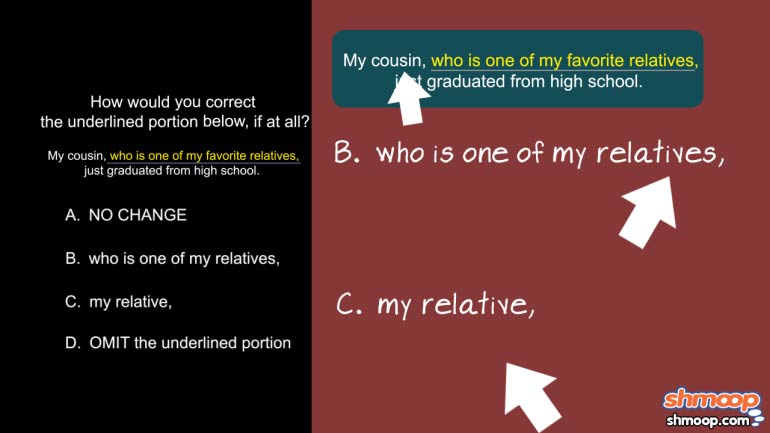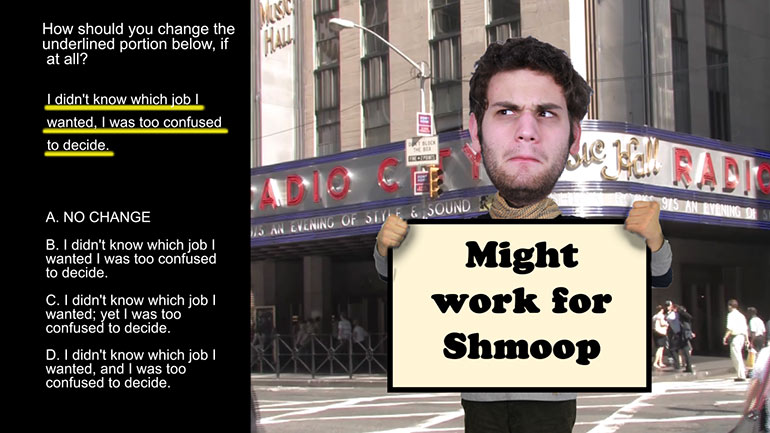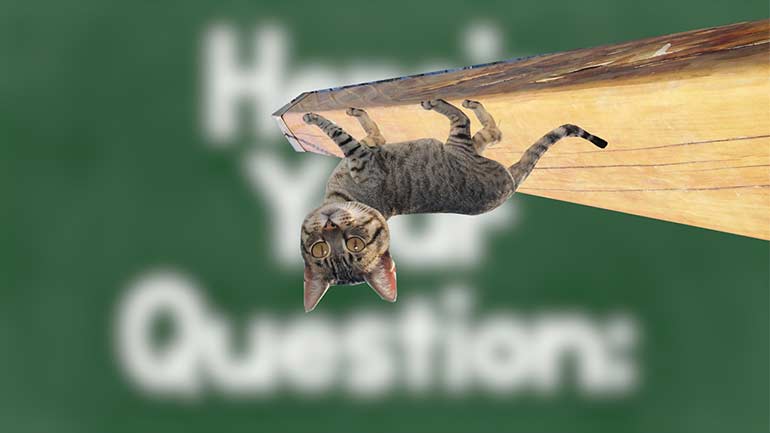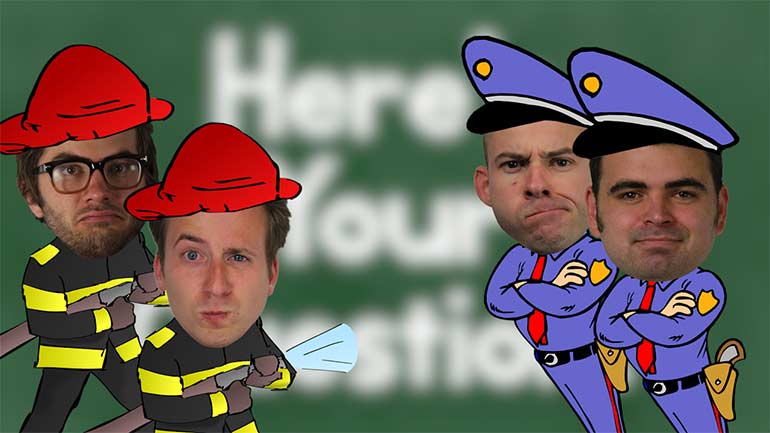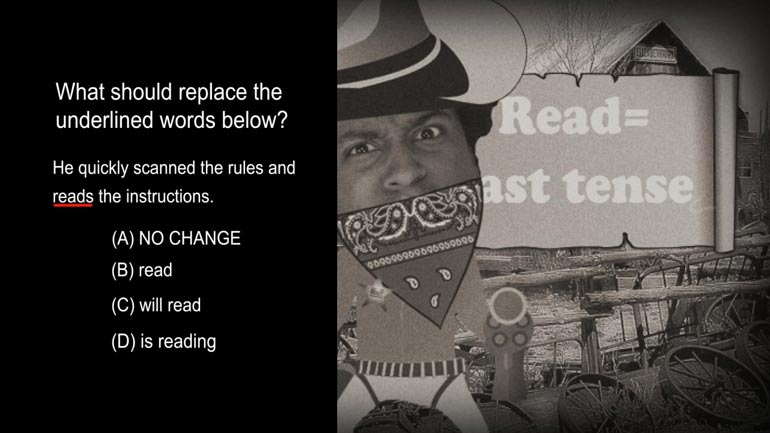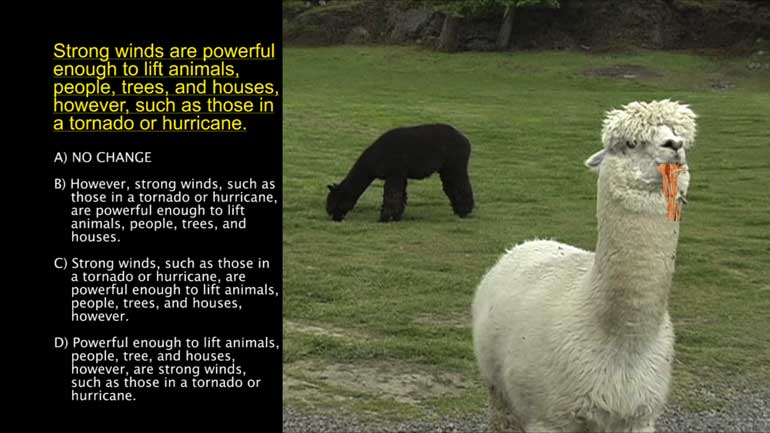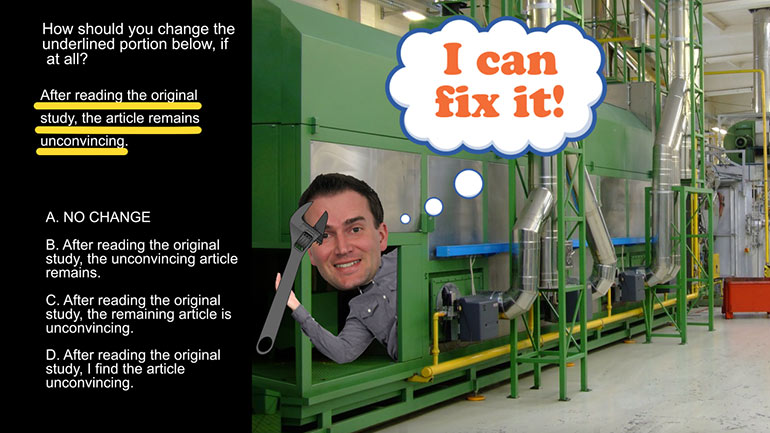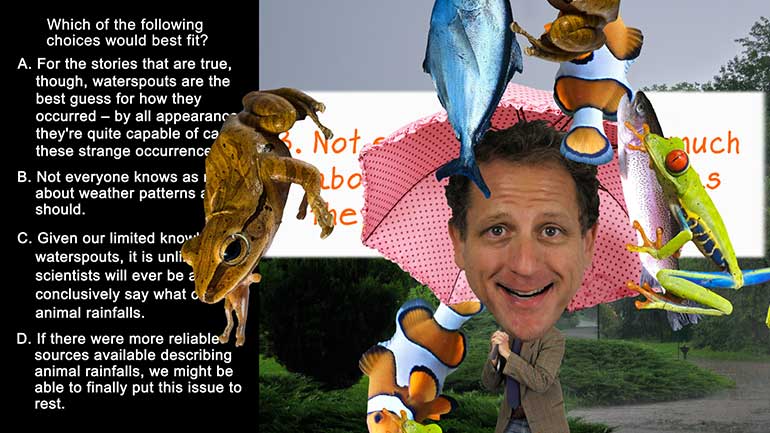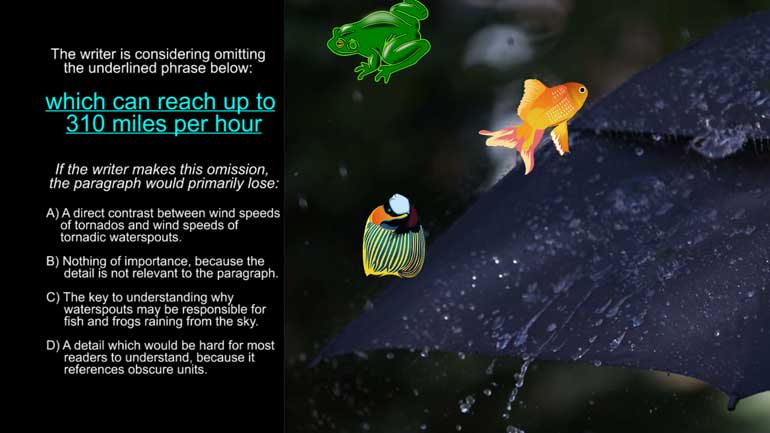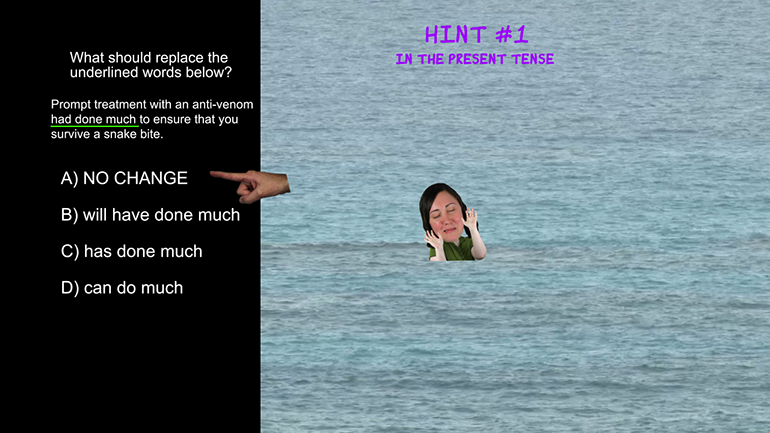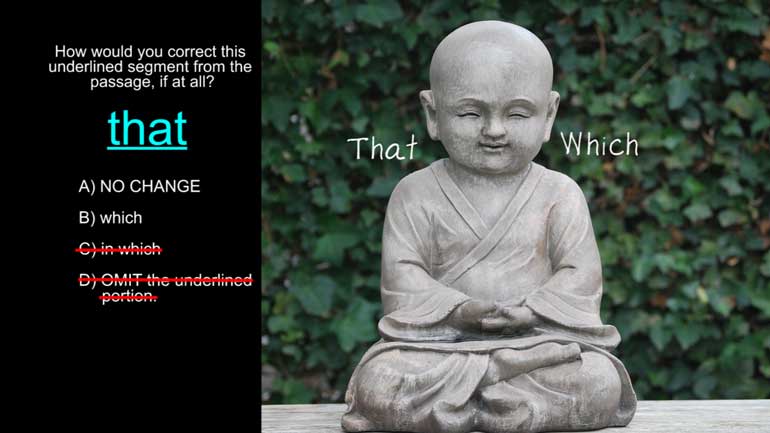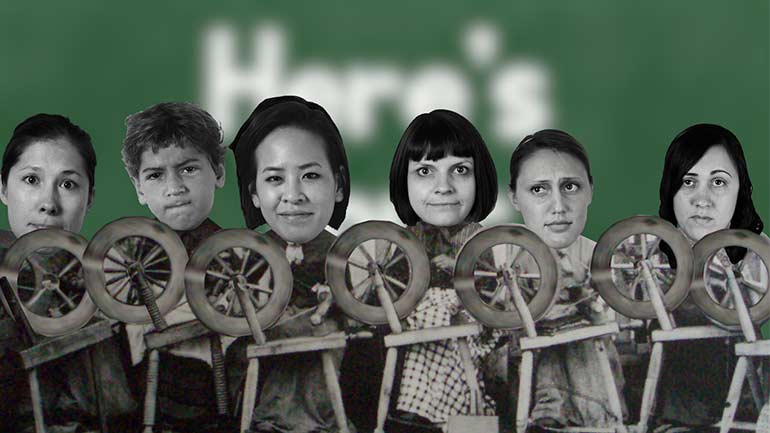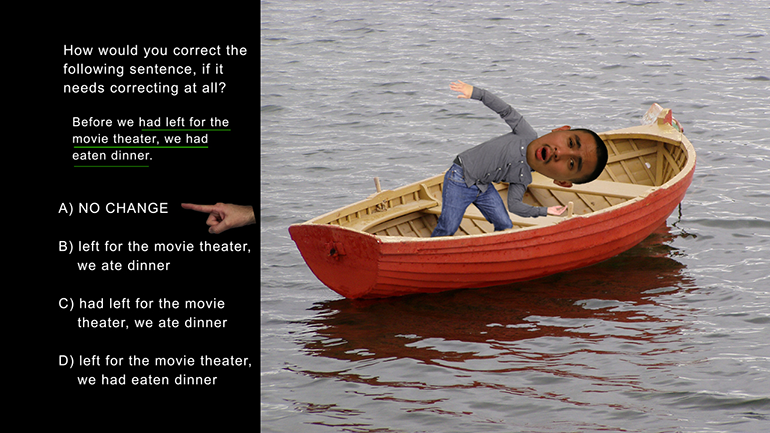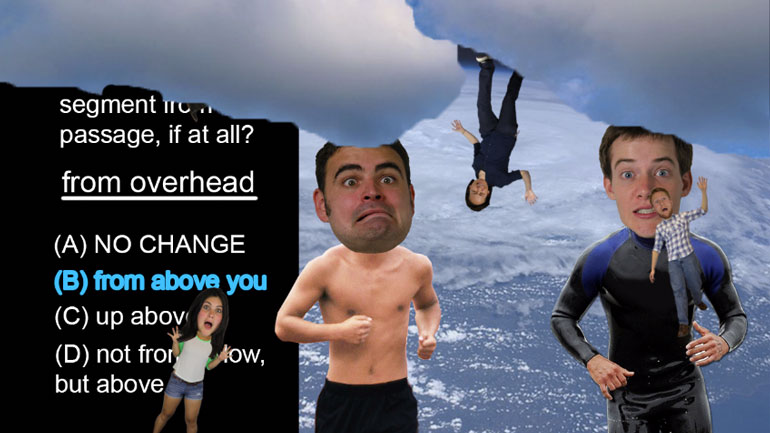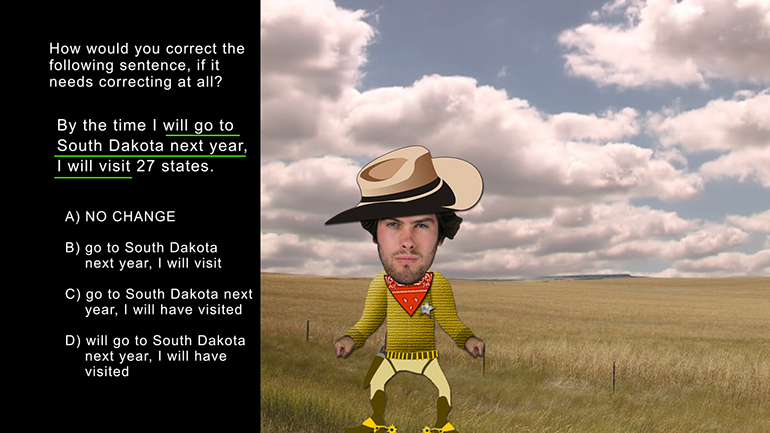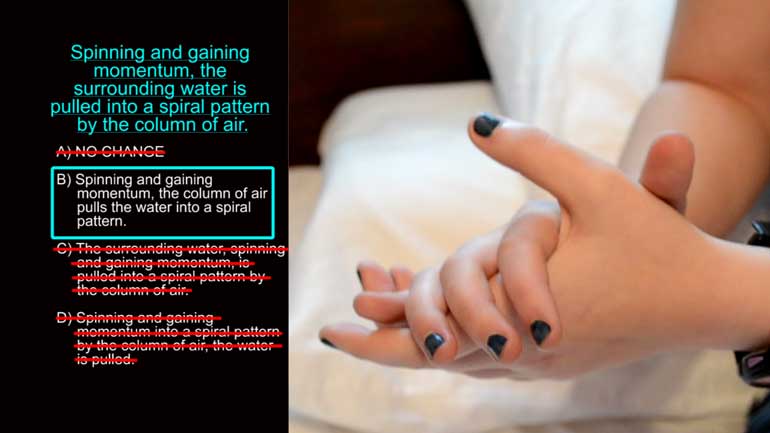ShmoopTube
Where Monty Python meets your 10th grade teacher.
Search Thousands of Shmoop Videos
ACT English Videos 157 videos
ACT English: Grammar and Usage Drill 1, Problem 1. What should replace the underlined word?
ACT English: Organization Drill 1, Problem 1. Which transition works best?
ACT English: Passage Drill Drill 1, Problem 1. Conjunctive Adverbs.
ACT English 2.11 Passage Drill 236 Views
Share It!
Description:
ACT English: Passage Drill 2, Problem 11. Which of the following sentences would make the most effective transition?
Transcript
- 00:03
Here's your Shmoop du jour, brought to you by a sense of foreboding. Be afraid. Be very afraid.
- 00:32
The writer would like to insert an additional sentence here in order to create a better
- 00:35
transition to the following paragraph. Which of the following would make the most effective transition?
- 00:48
The clues here are the words "however" and "soon realized" in the first sentence of Paragraph
- 00:53
4, which signal a contrast to the previous sentence. Whichever sentence the writer chooses
Full Transcript
- 00:58
to cap Paragraph 3 with needs a different tone than Paragraph 4's slightly ominous
- 01:03
intro sentence. As soon as we hear that the cat doesn't like water, we know there's a bad moon on the rise.
- 01:09
So if we're going to get the shift in tone we're looking for, the new sentence needs to sound reasonably hopeful.
- 01:16
Choice (A) fails because it sounds too ominous. When we hear the sentence, "Little did I
- 01:20
know what lay ahead," it makes us think a dude's around the corner with a knife.
- 01:25
Or worse... a mother-in-law is dropping by for a surprise visit.
- 01:29
Anyway, (A) doesn't contrast the first sentence in Paragraph 4, so we can cross it out.
- 01:35
Choice (B) is a definite no because it's even more ominous than (A). It straight-up
- 01:39
says that something went "terribly wrong." Most people wouldn't call that positive
- 01:44
unless they're the sorts who like when bad things happen to them.
- 01:49
Choice © doesn't work because the flow of logic is off. The sentence that will directly
- 01:52
precede this new sentence is talking about all the stuff the writer got together in preparation
- 01:58
for his or her kitty-bathing adventure. Thus, it feels a bit disjointed to jump from there
- 02:02
to talking about how the cat needs to be cleaned as soon as possible.
- 02:06
Choice (D) wins the day with the sentence, "We were ready for business." This flows
- 02:11
logically from the preceding sentence and has the necessary positive connotation.
- 02:17
Anybody who can be positive about bathing a cat is either certifiable, or the most positive thinker of all time.
Related Videos
ACT English: Punctuation Drill 2, Problem 2. Where should the semi-colon be placed?
ACT English: Punctuation Drill 3, Problem 1. How should this sentence be changed so that it is grammatically correct?
ACT English: Punctuation Drill 3, Problem 2. How should we properly hyphenate the words in this sentence?
ACT English: Punctuation Drill 3, Problem 4. Which choice best formats this list of items?
ACT English: Punctuation Drill 2, Problem 1. Which choice of punctuation best completes the sentence?
